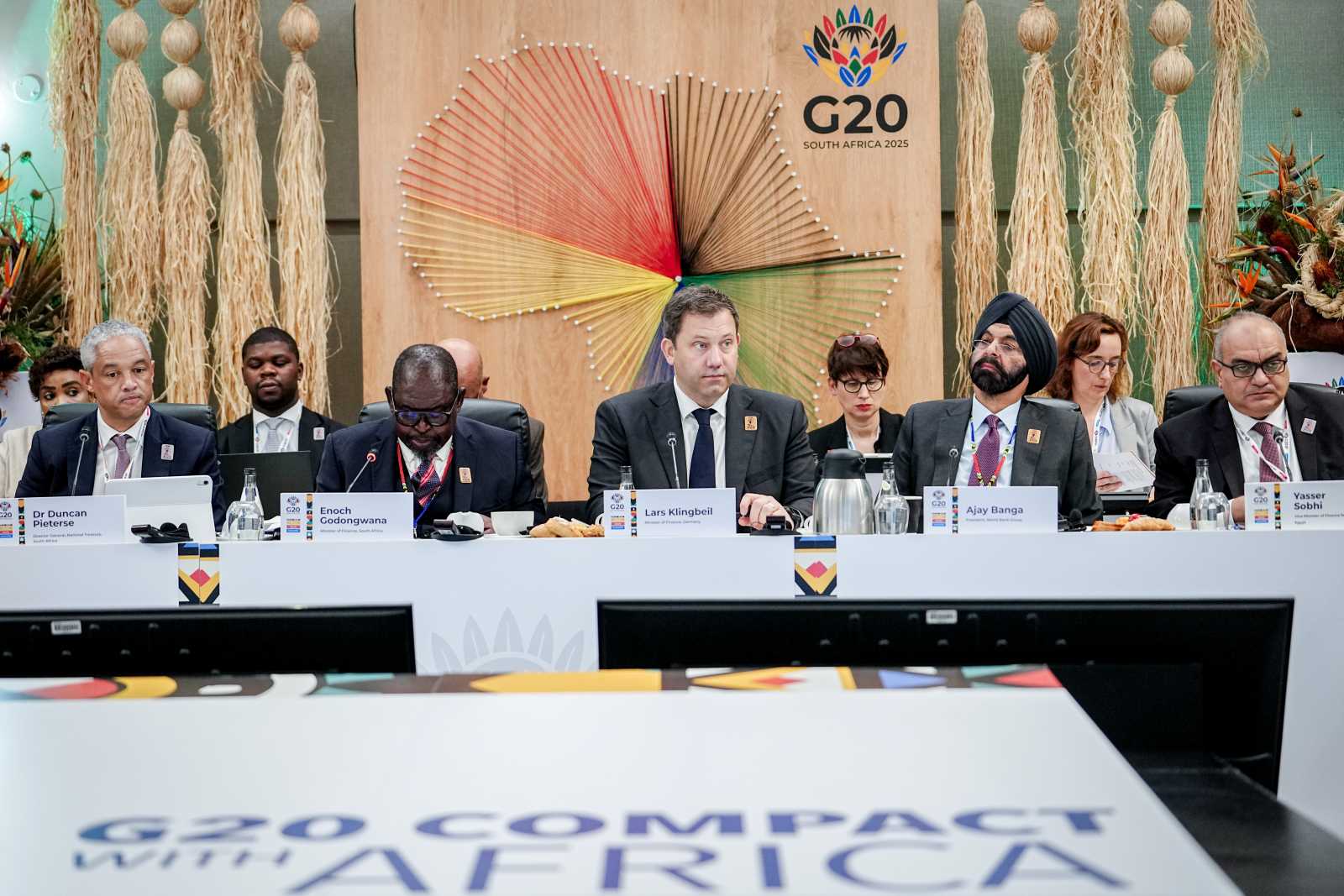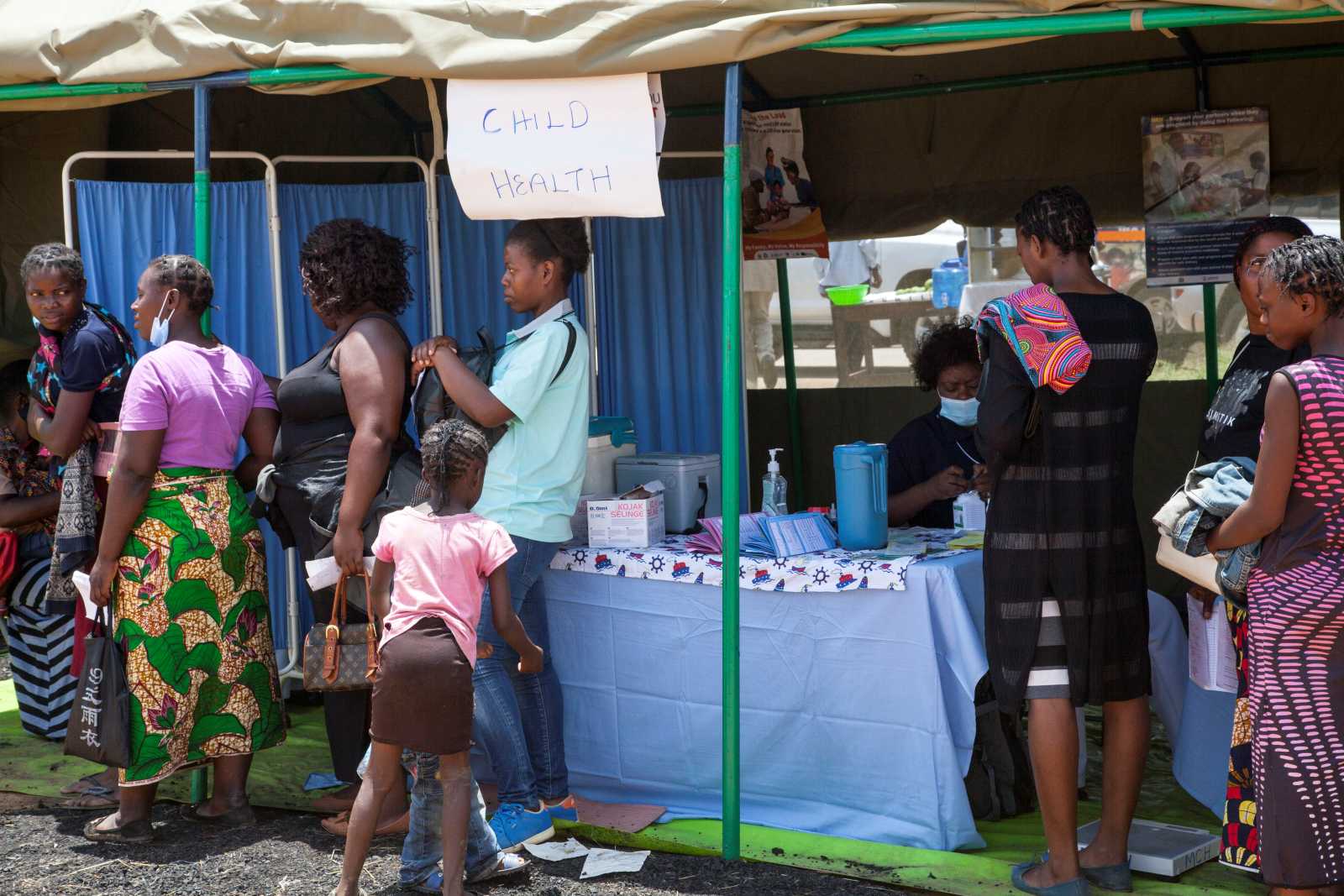Fusion von GTZ, InWEnt und DED
Agnes Abuom zu Reformplänen
Internationally, poverty has only been successfully fought where the private sector has thrived. How can and should a donor agency best support developing countries in this respect?
While this may be true, history shows that where poverty is successfully fought the state had welfare policies of protecting the weak and ensuring that social protection is available. Private sector must thrive but it has to be checked by public and state. In this case, the current public private partnership is very important to remember. In fact I would argue that where private sector thrives without control mechanisms that where we note serious and deep poverty among vulnerable groups for example the USA where in the midst of riches there are too many rags – street homes, hungry and sick people. Private sector has never thrived and fought poverty on its own in fact it has contributed to environmental degradation especially in absence of policy regimes and systems that keep taps on its performance. Poverty in Europe especially western Europe was not only fought by private sector, as mentioned earlier the state and civil society has been engaged – welfare state – regulation and taxation of private sector to allow for the state to administer equitable justice. The Dutch and Nordic model is important to remember.
The Millennium Development Goals stress progress in specific sectors. How can and should a donor agency for technical cooperation best support developing countries in this respect?
By now we all know that Millennium Development Goals may not be achieved by 2015 due to lack of financing and good governance. Through bilateral and multilateral cooperation donors have picked certain themes for support. If MDGs were to tackle issues related to poverty then donor agencies need a clearly stated policy framework on the thematic areas to support and categories of vulnerable and poor people. Coherence, consistency and coordination of policy and implementation strategies while having improved is a must which currently lacks to a large extent. An integrated approach is another must or mainstreaming of issues as the 8 Goals clearly indicate. Therefore sector approach should emanate from a national and integrated policy framework. Donor agencies are obliged to support communities to fight corruption and poor or even lack of leadership as these contribute to undermining any gains of development support. Finally there is need to engage the three types of actors and enable them hold each other accountable namely the state, the private sector and the civil society. A rights based approach whereby the duty bearers account for their responsibility and rights holders exercise their rights and responsibilities. Information about support should be public to-date it remains within the walls of decision makers within the state apparatus.
The Paris Declaration and the Accra Agenda for Action stress the relevance of enhancing government capacities. How can and should a donor agency best support developing countries in this respect?
Perhaps areas of capacity enhancement are in the judiciary so that citizens can trust in a just, transparent and functional system that will deliver to all irrespective of class, ethnic or any other attribute. Further capacity in the government is to ensure that systems and mechanisms for attacking corruption are in place and functional as well those that truck resource mobilization – taxation, allocation and utilization. This is one area where knowledge is not in the public domain and governments are getting away with murder even where resources are devolved they are accompanied with decentralization of corruption thus deepening the syndrome even to communities. Finally, capacity enhancement should focus on security apparatus so that they are people friendly and protect rather than harm a culture that is slowly taking root.
Good and responsible governance have figured high on the development agenda ever since the World Bank's World Development Report of 1997. How can and should a donor agency best support developing countries in this respect?
Leadership development is essential – especially ethical leadership. This should start with community level leaders up to national ones especially parliamentarians and civic leaders. In my work, I have found that leadership and governance are very weak in the civil society and this denies them the moral authority to hold public and private sector leaders accountable. How can an NGO or church model transformative leadership when it own is skewed and not equipped with relevant skills that can propel the organization to a higher level. The culture of governance and leadership must change from status and money making to service, this implies that support be given to evolving a new culture including one of transition. The understanding of public institutions must of necessity be transformed from one of coffers to be emptied for private and interest groups to management for the common good of the entire nation, organization etc. This will take time. It is probably the key to unlock the pandoras box of poverty.
In regard to the past, what are strong points of GTZ, InWEnt and DED that you would want to last?
These Geran organizations have provided technical support thus moving countries to appreciate the need for professionalism. DED has brought a community – micro level approach with personnel committed to poverty eradication at community. The exchange programs have exposed many to new ways of doing things.
















